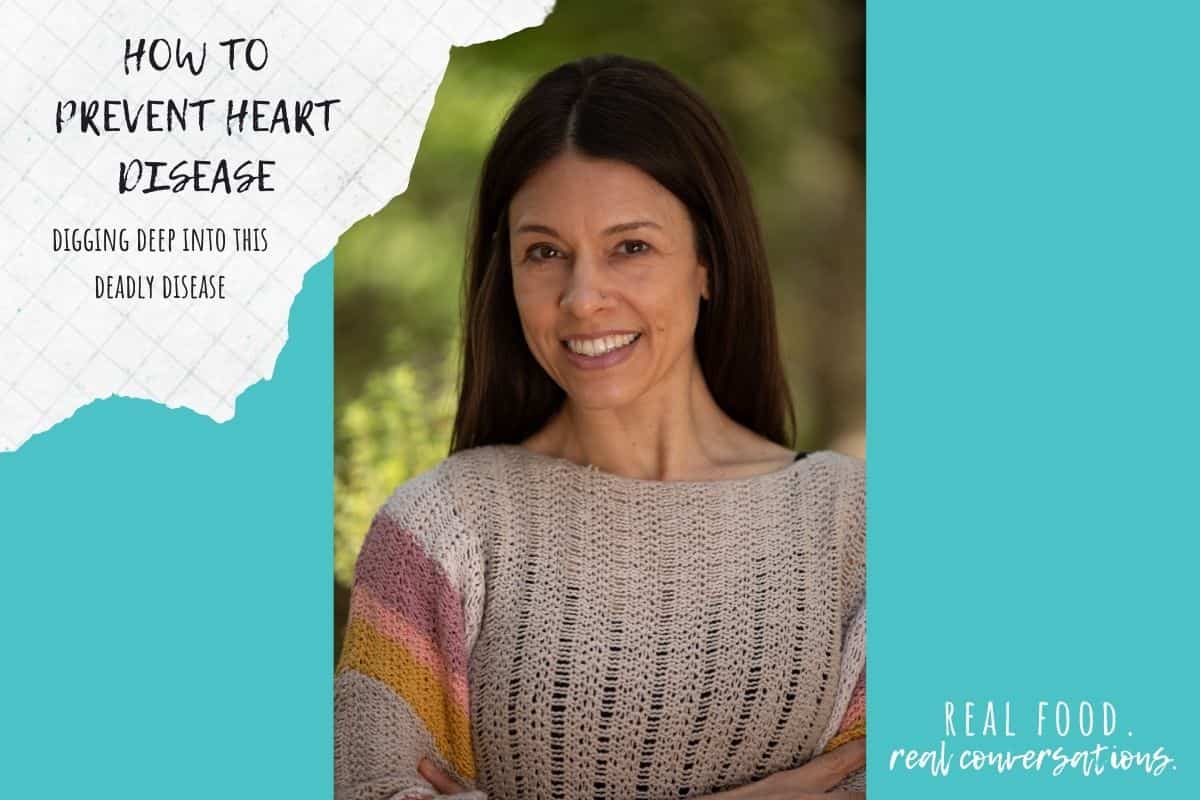As one of the top killers in our country, it is important to know how to prevent heart disease so that you can live a long healthy life.

While heart disease can run in families, it is still a highly preventable disease. There are so many lifestyle practices you can follow to help you stay away from this deadly disease.
Podcast: Play in new window | Download | Embed Subscribe now! Apple Podcasts | iHeartRadio | TuneIn | Deezer | RSS | More
Nichole Dandrea-Russert, MS, RDN, has been a registered dietitian nutritionist for 25 years, specializing in heart disease, diabetes, sports nutrition and women's health. For the past ten years, she has focused on plant-based lifestyles through inspiring and educating people about plant-based eating to optimize their health and the health of the planet.
Nichole has been featured in Eating Well, Business Insider and Atlanta Journal Constitution. She is also a media spokesperson for The Weather Channel and local Atlanta television networks. A former triathlete and current yoga instructor, she shares her passion through her website Purely Planted. She lives in Atlanta, GA with her husband and rescue dog, Mariposa.
Grab her FREE ebook 5 Tasty and Simple Plant-Based Salad Dressings!
The Science Behind Heart Disease
Heart disease doesn't have just one cause, it can be multi factorial (ie it has many causes).
It can start in your arteries with atherosclerosis, which is a thickening or hardening of the arteries. Plaque can build up through cholesterol and other particles like calcium.
Blood pressure can also be an issue. The whole cardio vascular system from your feet up to your head keeps the blood flowing and pumping and brings it to the heart and lungs.
As plaque start to build up, or your blood pressure is high, and the oxygen isn't brought to your heart and lungs through your blood, you start to develop symptoms of heart disease.
Symptoms
There are many things you can start feeling when your heart and lungs aren't getting the oxygen they need to function at full capacity. You may feel tired, weak, or have a lack of energy.
However you also may feel nothing. Which makes it really important to know your risk factors and get regular blood work because heart disease can build up over time.
Risk factors
Lifestyle is a big part of staying healthy and preventing heart disease in individuals. We know that there are hereditary factors, however this doesn't mean that this is your fate.
Other risk factors include:
- Smoking
- Being overweight
- Diet
- High cholesterol
- Lack of exercise
Eating a diet high in saturated fat contribute to high cholesterol. This is mainly an animal product based diet.
Also, sugar contributes to high triglycerides so making sure to control added sugars is important as well.
These things cause inflammation and can contribute to plaque build up and arterial hardening leading to heart disease.
Starts at infancy, the risk for heart disease
We need to educate the parents
Hereditary factors
If you have heart disease in your family, this doesn't mean you will have it too. There are many things you can do to help prevent it.
Avoiding all those risk factors above will help, and living a lifestyle that includes a wholesome plant rich diet and some exercise will have a huge impact.
Starting young is big. Being able to start those habits early will help make it easier to stay heart disease free.
Preventing Heart Disease
Heart disease is a chronic condition that you can actually do something about. Here are some things that you can do:
- Eat a diet rich in plants. This has the greatest impact. Animal products are full of cholesterol which contributes to heart disease. It doesn't have to be an all or nothing thing, but when your diet consists mostly of plants you are setting your body up for success.
- Get regular exercise. Moving your body is important for a healthy lifestyle. It helps keep your cardiovascular system in shape and strong and it can also reduce stress.
- Get regular check ups and blood work with your doctor. This is especially important if you have heart disease in your family.
One this that is important to remember is that eating a healthy diet and getting exercise doesn't have to be fancy or expensive. All people can do this regardless of their socioeconomic status.
When it comes to diet, don't think about doing a complete overhaul, think about adding more things to your plate instead of taking everything out.
Nichole loves to go by the 3 color rule: add 3 colors whenever you can. This also helps increase the diversity in your food which is so good for your gut biome!
Another simple thing to do is you can swap out foods, for example you can use hummus instead of mayo on sandwiches.
Stress reduction
Stress can also be a risk. Incorporating techniques to reduce stress is really important. While exercise is a great one, there are also other things you can do.
Regular meditation is a great tool for reducing stress. It doesn't have to be long or complicated. Simply being in the moment for 2-3 minutes can help!
Start all of these things when kids are young can be the biggest way we can prevent this disease!

PS- If you liked this episode of Real Food Real Conversations, please subscribe and leave me a review!
And tag me on Instagram whenever you're listening! I reply to all my messages!














Questions or comments? Let me know below!